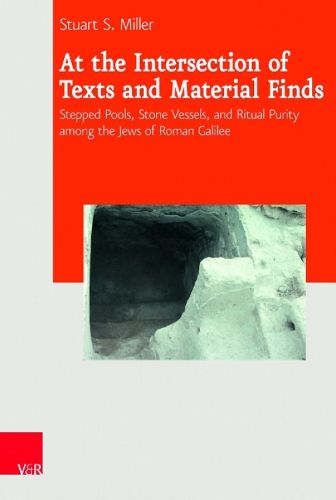Readings Newsletter
Become a Readings Member to make your shopping experience even easier.
Sign in or sign up for free!
You’re not far away from qualifying for FREE standard shipping within Australia
You’ve qualified for FREE standard shipping within Australia
The cart is loading…






Stuart Miller examines the hermeneutical challenges posed by the material and literary evidence pertaining to ritual purity practices in Graeco-Roman Palestine and, especially, the Galilee. He contends that stepped pools , which we now know were in use well beyond the Destruction of the Temple, and, as indicated by the large collection on the western acropolis of Sepphoris and elsewhere, into the Middle and Late Roman/Byzantine eras,must be understood in light of biblical and popular perspectives on ritual purity. The interpretation of the finds is too frequently forced to conform to rabbinic prescriptions, which oftentimes were the result of the sages unique and creative, nominalist approach to ritual purity. Special attention is given to the role ritual purity continued to play in the lives of ordinary Jews despite (or because of) the loss of the Temple. Miller argues against the prevailing tendency to type material finds – and Jewish society – according to known groups (pre-70 C.E.: Pharisaic, Sadducaic, Essenic; post 70 C.E.: rabbinic, priestly, etc.). He further counters the perception that ritual purity practices were largely the interest of priests and argues against the recent suggestion that the kohanim resurfaced as an influential group in Late Antiquity. Building upon his earlier work on sages and commoners, Miller claims that the rabbis emerged out of a context in which a biblically derived complex common Judaism thrived. Stepped pools, stone vessels, and other material finds are realia belonging to this complex common Judaism . A careful reading of the rabbis indicates that they were acutely aware of the extent to which ritual purity rites pertaining to home and family life had spread, which undoubtedly contributed to their intense interest in regulating them.
$9.00 standard shipping within Australia
FREE standard shipping within Australia for orders over $100.00
Express & International shipping calculated at checkout
Stuart Miller examines the hermeneutical challenges posed by the material and literary evidence pertaining to ritual purity practices in Graeco-Roman Palestine and, especially, the Galilee. He contends that stepped pools , which we now know were in use well beyond the Destruction of the Temple, and, as indicated by the large collection on the western acropolis of Sepphoris and elsewhere, into the Middle and Late Roman/Byzantine eras,must be understood in light of biblical and popular perspectives on ritual purity. The interpretation of the finds is too frequently forced to conform to rabbinic prescriptions, which oftentimes were the result of the sages unique and creative, nominalist approach to ritual purity. Special attention is given to the role ritual purity continued to play in the lives of ordinary Jews despite (or because of) the loss of the Temple. Miller argues against the prevailing tendency to type material finds – and Jewish society – according to known groups (pre-70 C.E.: Pharisaic, Sadducaic, Essenic; post 70 C.E.: rabbinic, priestly, etc.). He further counters the perception that ritual purity practices were largely the interest of priests and argues against the recent suggestion that the kohanim resurfaced as an influential group in Late Antiquity. Building upon his earlier work on sages and commoners, Miller claims that the rabbis emerged out of a context in which a biblically derived complex common Judaism thrived. Stepped pools, stone vessels, and other material finds are realia belonging to this complex common Judaism . A careful reading of the rabbis indicates that they were acutely aware of the extent to which ritual purity rites pertaining to home and family life had spread, which undoubtedly contributed to their intense interest in regulating them.